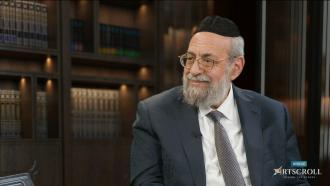A coalition of Orthodox Jewish organizations has filed an amicus curiae (“friend of the court”) brief in the United States Supreme Court in a case, Fulton v. City of Philadelphia, that could have important ramifications for freedom of religion in the country.
As explained by Rabbi Mordechai Biser, Esq., special counsel to Agudath Israel of America – one of the organization on whose behalf the brief was filed – the issue in the case is whether the City of Philadelphia acted unconstitutionally when it conditioned a religious agency’s ability to participate in the City’s foster care system on the agency’s conforming to City policies that contradicted its religious beliefs regarding the placement of children in foster homes.
However, Rabbi Biser added, at stake in the case may well be more than simply the ability of one particular religious foster care agency to continue to operate. As the briefs submitted on behalf of the agency and by the coalition of Jewish organizations and other groups argue, this case provides the Supreme Court an opportunity to overrule a decision it made 30 years ago that has severely restricted religious freedom across the United States.
The Jewish organizational brief, submitted by the National Jewish Commission on Law and Public Affairs (“COLPA”) on behalf of Agudath Israel of America, Agudas Harabbonim of the United States and Canada, the National Council of Young Israel, the Orthodox Jewish Chamber of Commerce, the Rabbinical Alliance of America, the Rabbinical Council of America, and Torah Umesorah, was authored by noted Washington attorney Nathan Lewin.
The COLPA brief supports the argument of the foster care agency and other amicus groups calling upon the Supreme Court to overrule its 1990 decision in Employment Division v. Smith, which held that the First Amendment does not protect religious observance that conflicts with an otherwise neutral law of general applicability. That decision has curtailed religious freedom in numerous cases ever since.
The Jewish organizations argue that not only was the Smith decision substantively wrong, but that the procedure used by the Supreme Court in making the decision was also fatally flawed. As they point out, with support from the archival files of then-Supreme Court Justice Harry Blackmun, the parties in that case had never been given an opportunity for briefing and arguments on the substance of the issue ultimately decided by the Court. These archival records establish that Smith was decided by a process that violated proper court procedure.
It is noteworthy that of all the many briefs filed so far in this case, COLPA’s is the only one that relies on the clear historical record established by the Blackmun Papers at the Library of Congress.
Rabbi Chaim Dovid Zwiebel, Executive Vice President of Agudath Israel of America, thanked Mr. Lewin for his work on this important brief, adding, “For well over half a century, Nat Lewin has been the leading voice advocating for the interests and rights of the Orthodox Jewish community. The compelling brief he has authored in this case will give the Supreme Court important information it can use to overrule its disastrous Smith decision in 1990 that has so severely curtailed religious liberty for Jews and others in this country. As always, we owe Nat a tremendous debt of hakaras hatov – appreciation for his extraordinary advocacy and commitment.”

















